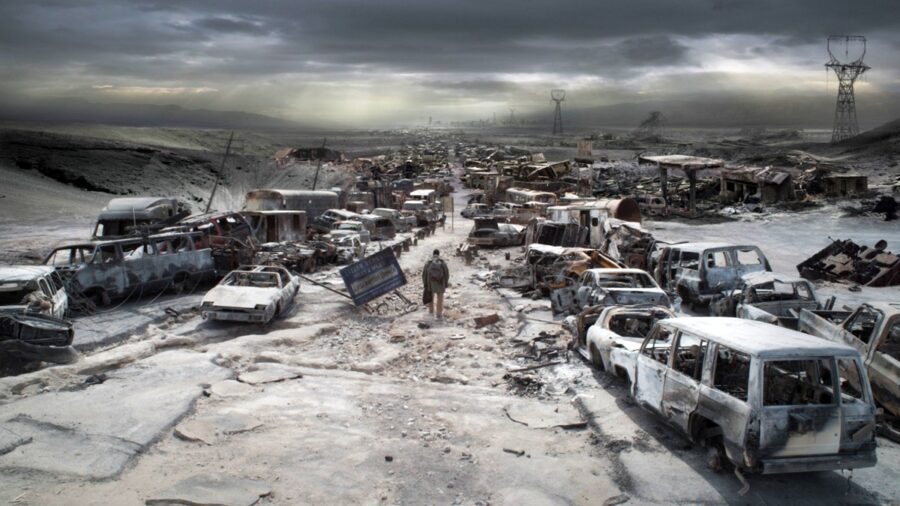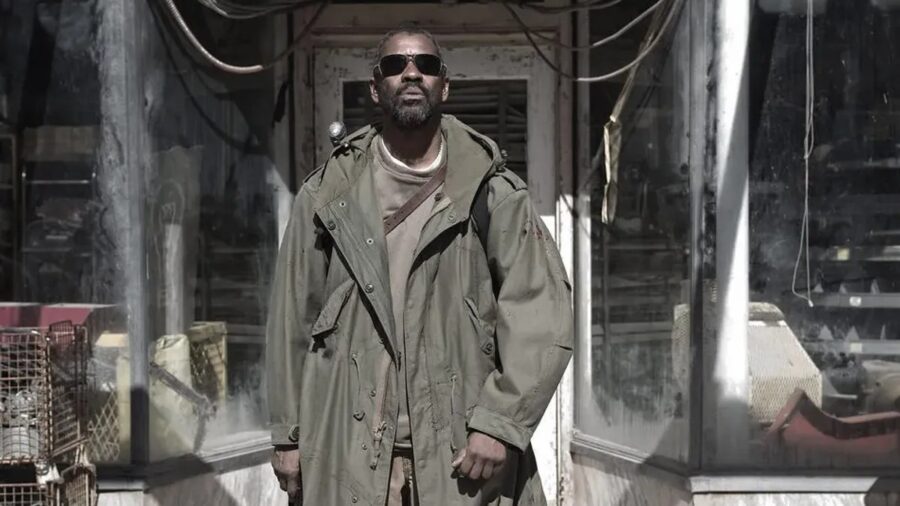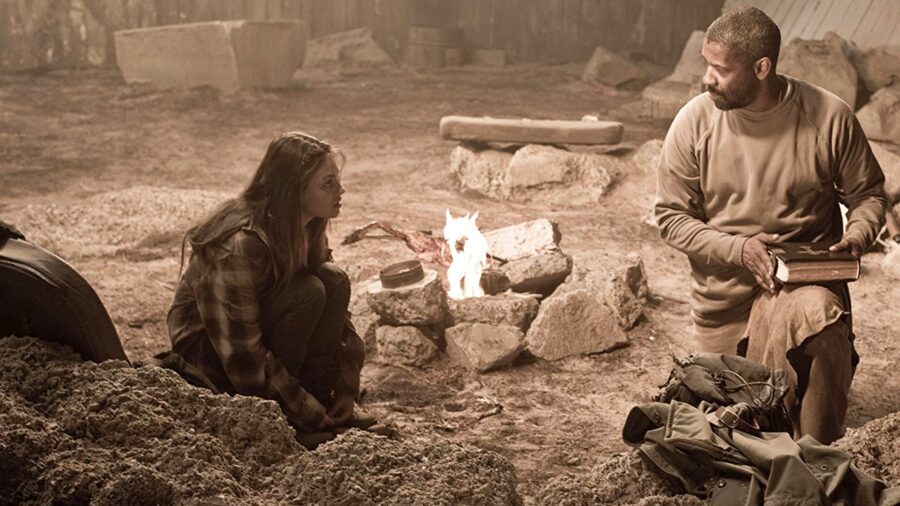The Post-Apocalyptic Action Blockbuster That Deserves A Series More Than Mad Max

In a world devastated by nuclear fallout and societal collapse, one man walks alone, carrying a book that holds the key to humanity’s salvation. No, it’s not another installment of the Mad Max series, but rather The Book of Eli. This underappreciated gem of a post-apocalyptic action film offers a unique and compelling narrative that not only rivals the Mad Max franchise but deserves a series of its own.
While Mad Max often thrives on high-octane action and vehicular mayhem, The Book of Eli delves into questions of faith, morality, and the preservation of knowledge.
With its four released films and the prequel Furiosa and sequel Mad Max: The Wasteland on the way, Mad Max has carved out a legendary status in the world of post-apocalyptic cinema. From the desolate landscapes to the iconic Max Rockatansky, it is a series that has defined the genre for decades. However, The Book of Eli stands toe-to-toe with those films, offering something refreshingly different.
The Book of Eli distinguishes itself with its profound thematic depth. While Mad Max often thrives on high-octane action and vehicular mayhem, The Book of Eli delves into questions of faith, morality, and the preservation of knowledge. The protagonist, Eli, is on a mission to protect and deliver the last known Bible in a world that has lost its way.

His unwavering commitment to this task raises thought-provoking questions about the importance of preserving culture, history, and spirituality in dire circumstances. It’s a narrative rich with philosophical undertones that could be further explored in additional films. Moreover, The Book of Eli boasts a stellar cast led by Denzel Washington, whose portrayal of the titular character is brilliant.
Although Washington’s Eli dies at the end of the film, more movies could delve deeper into the character’s backstory, such as his blindness, allowing viewers to connect with him on a more profound level. While Mad Max has its share of memorable characters, its focus has always been on the titular road warrior.
The Book of Eli presents an opportunity to focus on a more interconnected ensemble of characters, each with their own compelling stories to tell. The most obvious choice for a new film is Mila Kunis‘ character, Solara, who finds solace with Eli and seemingly takes up his cause at the end of the movie. With Hollywood leaning toward strong female leads, this could be a great creative choice for new stories.

The Book of Eli performed well at the box office, earning approximately $157 million worldwide. While it may not have reached the staggering box office heights of some other blockbusters, its performance was certainly respectable, especially considering it was released during the typically quieter early-year period of 2010.
Although Washington’s Eli dies at the end of the film, more movies could delve deeper into the character’s backstory, such as his blindness, allowing viewers to connect with him on a more profound level.
Critics praised The Book of Eli’s unique take on the post-apocalyptic genre, Denzel Washington’s compelling performance, and the film’s thought-provoking themes. The film, directed by the Hughes Brothers and written by Gary Whitta, currently holds a critic rating of 47 percent on review aggregator Rotten Tomatoes.
Audience reactions to The Book of Eli were more favorable than critical responses, with the film holding a 64 percent viewer rating on Rotten Tomatoes. The film’s performance at the box office and in terms of reception makes a compelling case for additional films or even a series set in the same universe as the Denzel Washington-led movie.
The Book of Eli’s financial success demonstrates that there is an audience interested in this post-apocalyptic world. Furthermore, the divergence between critical and audience reception suggests that there is room for exploration and expansion of the story and themes that resonated more strongly with all audience segments.
Interestingly, The Book of Eli’s religious themes and use of the Bible as a central plot element led to some controversy among religious groups and scholars. This was especially true for scenes where Eli recites the Bible verses in the order of their appearance, while the villains in the movie arrange them differently to suit their purpose.
The most obvious choice for a new film is Mila Kunis‘ character, Solara, who finds solace with Eli and seemingly takes up his cause at the end of the movie.
The Book of Eli’s distinctive visual style was influenced by the works of legendary photographer Ansel Adams, known for his breathtaking black-and-white landscape photography. This influence can be seen in the film’s use of stark contrasts and striking imagery. Soundtrack Collaboration: The film’s soundtrack was composed by Atticus Ross, who collaborated with Trent Reznor of Nine Inch Nails fame.
In an entertainment landscape where franchises are continually expanded, The Book of Eli deserves its shot at becoming the next post-apocalyptic blockbuster series, offering something both familiar and refreshingly different for fans of the genre.










